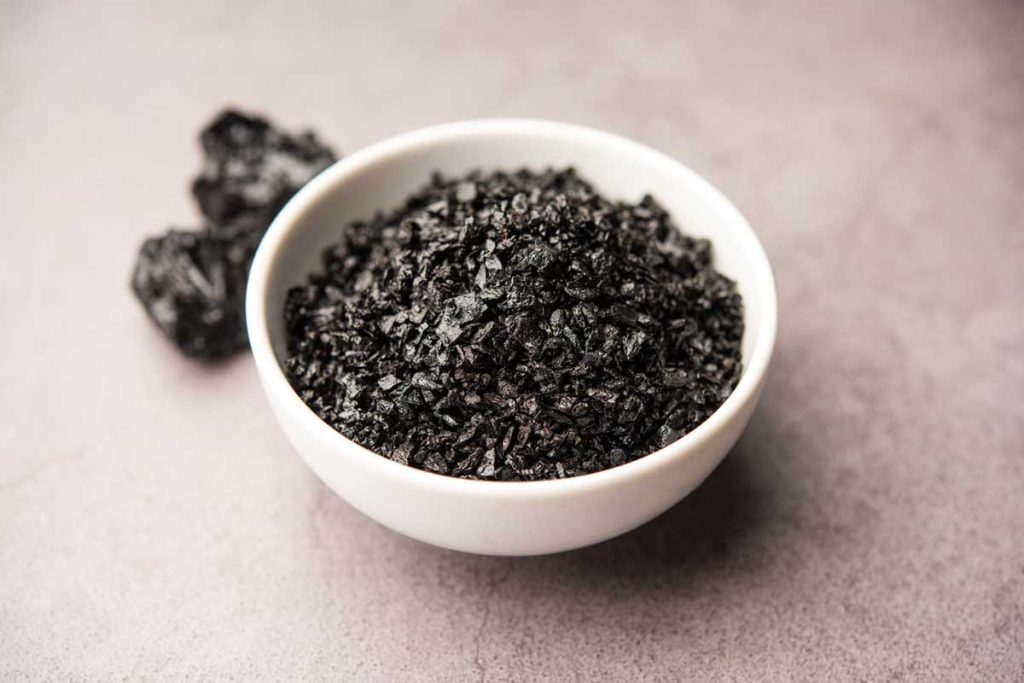
Should you try dead hangs for back pain?
Can hanging from a bar with your feet off the floor help alleviate back pain? According to fans of the dead hang, it just might! This exercise is said to help with mobility and strengthen a large group of muscles—the upper back, shoulders, core, forearms, wrist flexors, and hands—and can be performed at home, requiring only a stable bar.
The caveat to performing this powerful exercise? While effective for some, it isn’t exactly beginner friendly (and should be avoided entirely by those who are hypermobile). Because the shoulder can be relatively unstable, dead hangs are best suited to individuals with strong upper backs. Rock climbers, in particular, use dead hangs to increase grip and finger strength.
To try out this exercise, begin with short increments of time (less than five seconds) and increase the time as your endurance grows—keep your muscles stable and active as you hang to avoid losing shoulder stability.
Get to know shilajit and its anti-inflammatory properties
Rich in antioxidants and minerals, shilajit is a black, tar-like resin often used in Ayurvedic medicine, where it is prized for its anti-aging properties. Known in Tibet as “essence of the rock”, this resin is partially comprised of fulvic acid, the chemicals left over from organic decomposition.
When taken as a supplement, shilajit is typically sold as a powder inside a capsule. It has many proposed positive effects, some of which are supported by the findings of small studies. Shilajit has shown potential for slowing bone loss, supporting male fertility, and reducing exercise-induced fatigue. Fulvic acid, studied independently from shilajit, has shown some promise for its role in the prevention of Alzheimer’s disease.
As there is still debate on proper dosage, it is recommended that you discuss with a healthcare provider before starting a shilajit supplement.
Regulate your nervous system with stress-melting techniques
Social media is buzzing with the cyclical connection between your body and mental state. One idea is that stress-inducing situations, like poor sleep or conflict, can keep your autonomic nervous system (ANS) off-kilter, which can leave you feeling even more stressed.
The ANS is made up of two parts: the sympathetic and parasympathetic divisions. When these two sections are at odds, the parasympathetic (the body’s “rest and digest” state) is overcome by the sympathetic (which controls our fight-or-flight response).
This can leave you feeling stressed and on high alert, which some health care professionals refer to as a dysregulated nervous system. This can show up in the body as back pain, headaches, gastrointestinal issues, and more.
The good news? There are practices thought to restore balance to the ANS: deep breathing, meditation, yoga, and physical movement—especially if it’s outdoors—may break the cycle.
Sunomono—the salad that’s good for your blood pressure!
Sunomono is a light, vinegary salad that is commonly served as a side dish in Japan. The word “su” means vinegar in Japanese, which stars as the key ingredient along with cucumbers and aromatics such as dried wakame seaweed, grated fresh ginger, sesame seeds, and soy sauce.
Not only is this salad refreshing, but research shows that it may also help lower blood pressure. One large-scale study looked at the blood pressure of over 700 participants in Japan and found that men who lacked sunomono in their diet were more likely to have hypertension despite being of a similar weight.
The consumption of vinegar is thought to be the mechanism behind these findings, with other studies demonstrating a relationship between the consumption of vinegar and blood pressure. Pair it with cucumber, which may help lower blood sugar and promote feelings of satiety, and you have an easy-to-make, feel-good summer salad that keeps in the fridge for several days.
This article was originally published in the August 2024 issue of delicious living magazine.